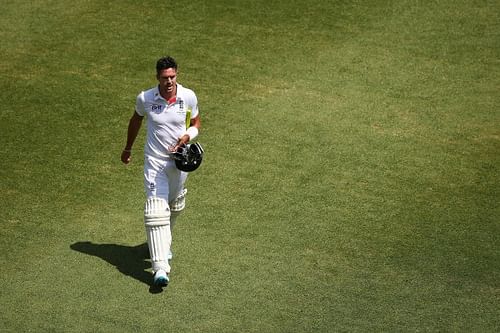
Kevin Pietersen: A study in mavericks

Kevin Pietersen
Champions come in many kinds. There are those of such outrageous talent and extraordinary genius that greatness is undeniable to them, regardless of what they do outside their playing arenas – the likes of Sachin Tendulkar and Tiger Woods. Then there are those whose brilliance of play on the field combines gracefully with their elegance of conduct off it to push them into greatness – the likes of Rahul Dravid and Roger Federer. And finally, there is the third kind, perhaps the most intriguing of them all – the mavericks. Their genius is sometimes erratic but undeniable. They are the players who dazzle you, players who leave you in awe, and players who can, if only on occasions, turn matches and tournaments single-handedly. These are the people you pay to watch. The Pietersens and the Safins.
Much has been written and talked about the first two, of their genius, character and dedication, but let’s talk about the mavericks for today. After all, they give us so much to talk about. Greatness is a word that you use carefully around them, for the word, in many versions of its definition, demands longevity, and a maverick is a flickering flame, one whose end you can never predict.
When Mike Atherton referred to Pietersen as a great player, Martin Crowe, the former New Zealand captain, asked him “A great player or a player of great innings?” There is a difference, a significant difference. While what defines sporting greatness is in itself a profound debate, there is a threshold for consideration, and your everyday maverick, for all his flashing brilliance, doesn’t make the cut. But there are those rare ones; mavericks who can summon their gifts more often than others, sometimes even at will and often on the biggest of occasions. History remembers them as fondly as the fans for they leave the game a lot richer, add enough sparkle to draw new crowds and their effect on them is invigorating.
The story of a maverick, though, is not always one with sunshine and roses. His genius is often accompanied by quirks. If you are lucky these quirks are tolerable, maybe even endearing, but more often than not they are annoying and frustrating. It is for this reason that the maverick has a far easier time in an individual sport like tennis or golf than he does in cricket or football. But he, however, isn’t unheard of; history is studded with irritable, inconsistent but astonishing talents making their mark on the greatest of teams on the biggest of stages. And there is perhaps no greater story than that of Kevin Pietersen’s in our times, of a maverick who crossed the threshold to greatness and perhaps even stood on the brink of a heroic legacy.
His is a tale of adapted nationalities and mingled loyalties, of unparalleled greatness and unspeakable shame; all of it set against an inspired backdrop of burning passion and an unquenchable desire to prove his place. He was, in every sense of the word, a maverick. An individual with such great gifts that he seldom had control. There must have been a part of him, the more mortal one, that demanded of him to be subdued, to play along and live by the rules, and it showed too on occasions, like the times when he went through the despicably named ‘reintegration course’ to earn his place back in the English team. But in the end it was never enough, for the maverick values more than anything else his individuality, an expression of the fleeting invincibility of his talent.
It is often easier for teams to find ways to live around their mavericks than to expect their spirits to be kindled in the everyday trivialities of team meetings and practice sessions. And for years the English team did this well, to find ways to get along with his unpredictability, to hide their frustrations and resentment, and perhaps for some of them, even to like him. On the long run, the runs made it all worth it. That in many ways is the essence of this delicate relationship; the greater the talent, the greater the tolerance you have towards the antics. A maverick that’s only promising, you bear a little, tinker a bit and then you get rid of, but a talent like Pietersen, the highest run getter for England across all formats and their most prolific batsman, you wait a long time, a very long time. It was because of this that when Tuesday brought the news of him being sacked, it came as a surprise.
At 33, you can hardly argue he is past his prime, and in what was for them a colossal disaster Down Under, a terribly out of form Pietersen was still their best batsman. Sometime along those dark days in Australia, in the swanky boardrooms of the Lord’s, faceless suited men, there by the sheer virtue of wealth and power, must have decided that the maverick had crossed that line, the one that separates the irritable asset from the disposable hindrance. And that is such a shame.